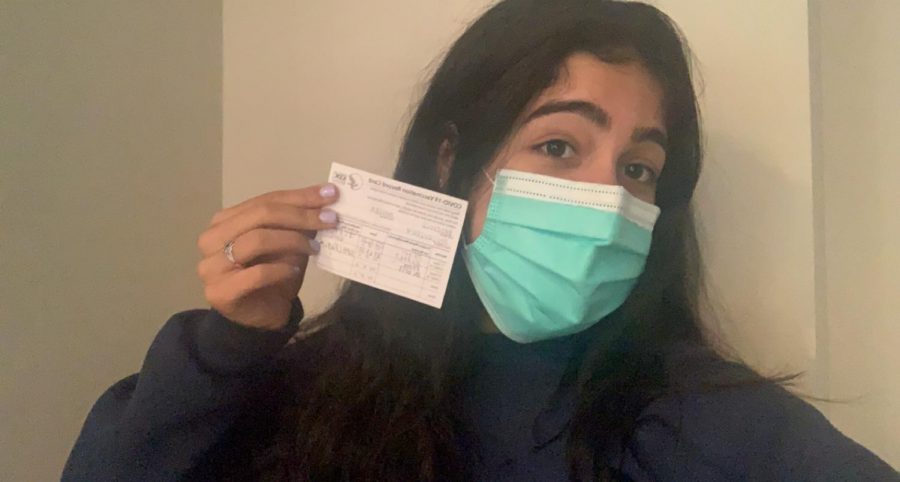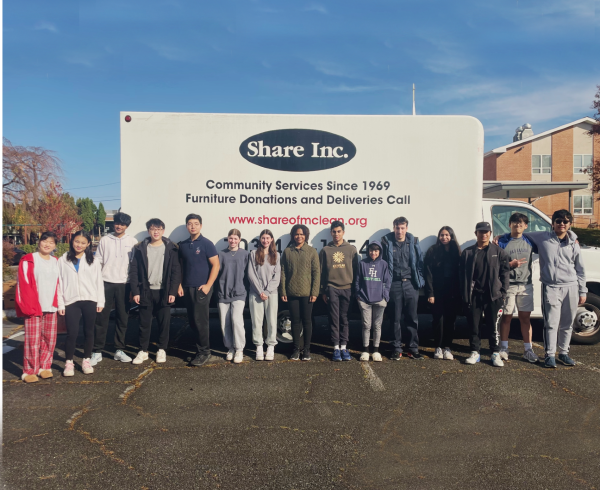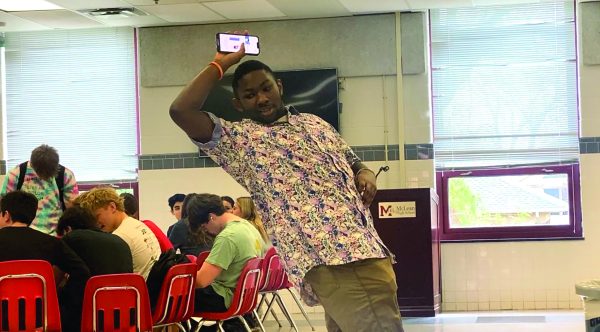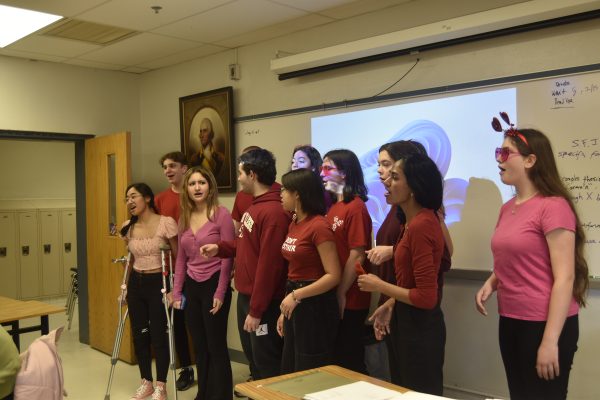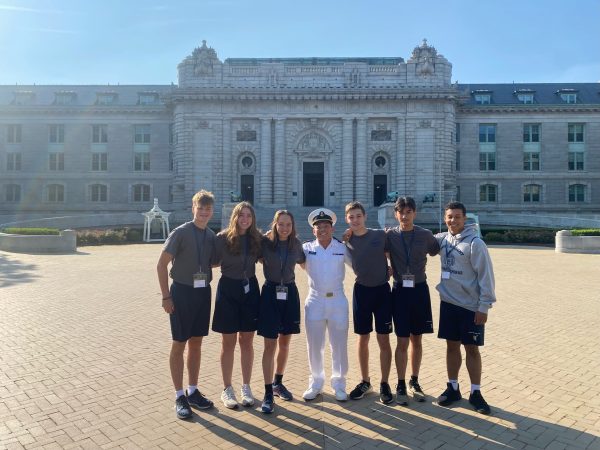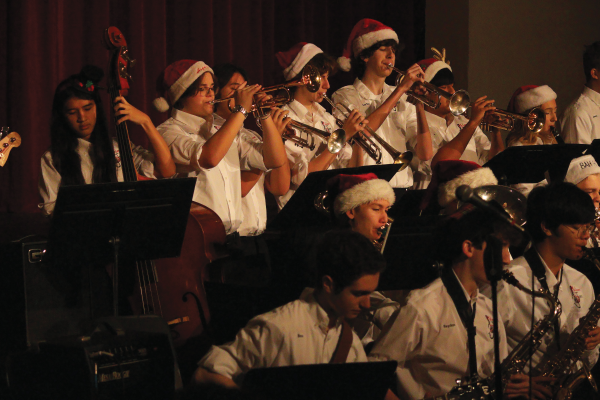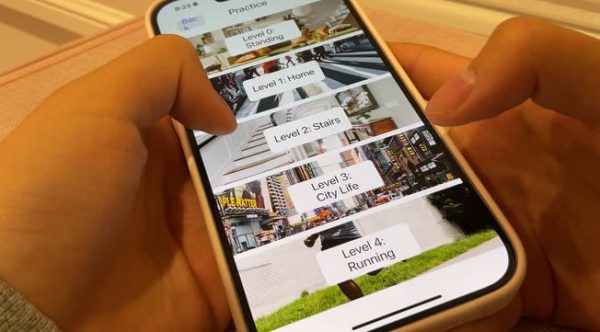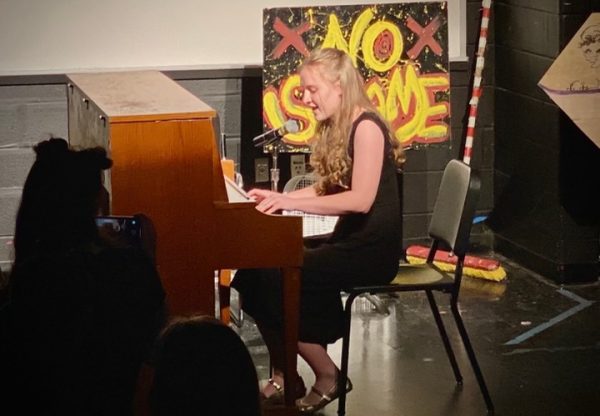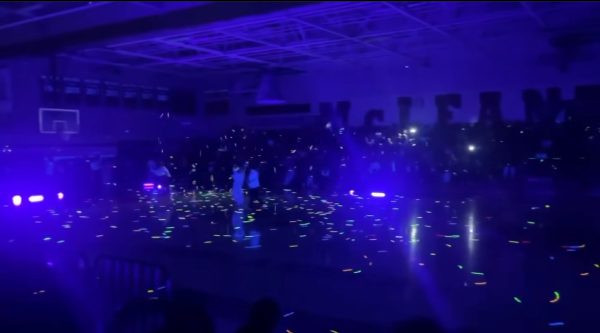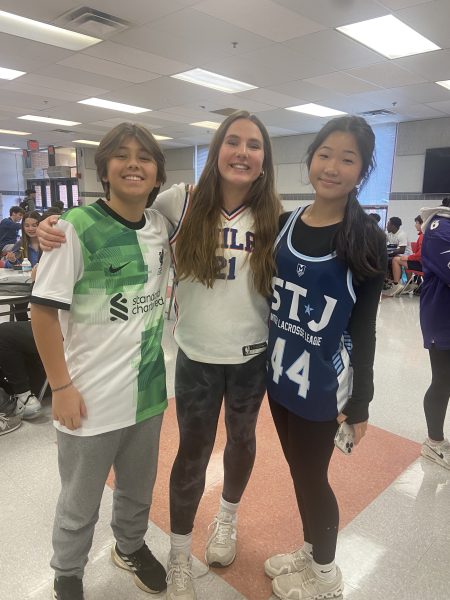McLean students and staff receive vaccine
As Virginia enters Phases 1A and 1B of the vaccine distribution plan, several McLean students and staff receive their doses.
March 26, 2021
A year after the first lockdown, the COVID-19 vaccines may be a light at the end of the tunnel. Currently, Virginia is in Phases 1A and 1B, which includes vaccinations for people over the age of 65, people with pre-existing health conditions, and people in the health department.
While it may seem like the general public won’t be getting their vaccines for a few more months, several McLean students and staff have already gotten their shots.
“I filled out the Virginia [form] and I got an email three hours later asking for me to register for a slot. In two days from that I was at GMU getting [the vaccine] administered by a GMU nursing student,” senior Mary Kate Ganley said.
Ganley got the first dose of the Pfizer vaccine on Friday, March 12. She said a few reasons, such as being an essential worker, contributed to her early vaccination.
“I’m a sanitation worker, I pick up trash… And I have urticaria, so I was bumped up the list a little bit,” Ganley said.
Other students who might be eligible for the vaccine include those with health conditions, or who work in high risk workspaces.
“Since I work for a clinic, they told me that I was able to get [the vaccine] and where I could sign up,” said sophomore Amelia Badipour.
Badipour received both doses of the Pfizer vaccine in February. Badipour advises students who think that they may be eligible for the vaccine to research eligibility in different counties.
“I have a few friends that travelled a couple of hours to a different county or a different state where they can get their vaccine. Whether it’s because they have asthma or some other condition, they did their research and figured out which group they would be in and which counties are administering vaccines to those groups,” Badipour said.
One of the reasons students may have reservations about getting a COVID-19 vaccination are the symptoms, which last approximately 24 hours.
“After my first [dose], I didn’t have any symptoms or side effects. But after my second one, my arm got very sore and I could barely move it. And I had chills for about 12 hours… and I had a headache,” Badipour said.
Like Badipour, Ganley also experienced brief symptoms after her vaccination, however, she emphasized that they are only temporary and are outweighed by the vaccine’s numerous benefits.
“When people are able to get vaccinated, get vaccinated. There’s no side effects, if you read there are or if someone tells you that there are they’re crazy. By side effects, I mean, like, learning disabilities and that stuff that people believe… Just get vaccinated like a responsible member of society,” Ganley said.
The general consensus seems to be that any symptoms from the vaccine dissipate quickly.
“Most people seem to feel the side effects after the second shot, but I was ok with my second shot, it was [actually] my first shot that affected me. I didn’t even realise it but in class someone said ‘Are you okay Mr. Click? You sound kind of funny.’ And I thought that was an unusual thing to say. But then after class, I was talking to my son, and he said exactly the same thing… I was fatigued and a little loopy because of the vaccine, so I just took a nap,” said French teacher Michael Click, who received the Pfizer vaccine at the end of January.
Click is a self-described germaphobe and says that the vaccine definitely influenced his decision to return to teach in person.
“I think that it was very responsible for the county to provide [vaccines] for the teachers, thus I think it is responsible for those of us who can come in because of the vaccine, to come in and teach,” Click said.
For students, the vaccine may have initially impacted their decision to return to school.
“I originally was [back in person] but I found that very few of my friends were in person. So I didn’t see the point of the risk versus the social reward. So I’m home now,” Ganley said.
Although she didn’t continue attending school in person, Ganley is appreciative of the added protection of the vaccine, especially as AP exams approach.
“It’s really nice, though, that if I end up having to go back to school, either for academic reasons, or for a standardized test, that I have the ability to do that without worrying too much about impacting my health or my family’s,” Ganley said.
For other students, knowing that they were eligible for the vaccine would have challenged their decision to stay virtual.
“I’m not going back in person. I’d made the decision before I knew that I was going to get a vaccine. [Now], I would be more comfortable going back in person since I am vaccinated,” Badipour said.
After getting the vaccine, Badipour believes that getting the vaccine is important for all members of the community. Students wondering if they or their family members are eligible for the vaccine can fill out this form.
“I think students should definitely get vaccinated, I think it will really help everyone to get back to school safely. And especially since I think that students and younger people are the ones going out more, they’re likely to get sick and spread it,” Badipour said.
At McLean, it’s clear students and staff alike are ready for this pandemic to be over.
“Get [the vaccine] the minute you can. We need to end this and it is only until the masses are vaccinated that this will end,” Click said.



